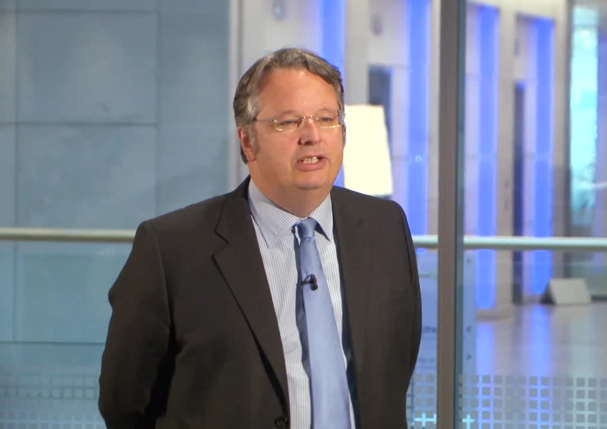Latin Americans Save Far Less than What They Will Likely Need for Retirement
| By Alicia Miguel | 0 Comentarios
Latin Americans are far more optimistic and confident than the world generally when it comes to their financial future as well as their savings and investment decision-making, according to results of the latest BlackRock Global Investor Pulse survey. Yet, Latin Americans have a critical challenge: In general, they have saved far less than they will likely need to sustain themselves financially in retirement.
The BlackRock survey, one of the largest of its kind globally, is conducted annually on a broad range of financial and investment management topics. This year BlackRock polled 27,500 individuals in 20 nations including, for the first time, 4,000 Latin Americans — 1,000 each from Brazil, Chile, Colombia and Mexico.
“The Global Investor Pulse survey clearly shows that Latin Americans are strongly motivated to be successful savers and investors, yet have fallen behind in some key planning areas, especially retirement,” said Armando Senra, Head of BlackRock’s Latin America & Iberia Region. “Across the region, individuals urgently need to strengthen their knowledge of effective financial behaviors, and take steps to ensure that they are deploying their money in ways best suited to meet their important long-term goals.”
Nearly three-quarters of Latin Americans (74%) have a positive view of their financial future, particularly Colombians (84%), compared with 56% of respondents globally, the poll indicates. Nearly seven of 10 (68%) Latin Americans are confident that they are making the right savings and investment decisions.
Latin Americans do see risks to their financial futures, in particular, their national economy (58%) and the high cost of living (54%). Many Latin Americans also see worsening conditions in both their national economy (44%) and job market (46%).
Retirement: Knowing What You Want Doesn’t Make It Happen
Latin Americans seem to have the best intentions regarding retirement planning. They are more likely than global investors to have begun saving for retirement (67% vs. 62%), and nearly two-thirds (63%) say they understand how much they need to save for retirement (vs. 50% globally).
Yet, good intentions don’t necessarily translate into effective action. Across the region, the total amounts that Latin Americans have saved for retirement typically equal just one to two years of their desired annual retirement income.
For example, Colombians have saved on average $13.3m COP for retirement – but estimate that they will need $14.9m COP in annual retirement income. The gap between expectation and reality is even wider for Brazilians, who have $10,069 BRL in retirement savings on average, but say they will need $47,500 BRL annually in retirement.
Balancing Retirement Saving with Daily Obligations
Many Latin Americans report being challenged to maintain a focus on retirement saving. Among those not yet fully retired, eight in 10 say that they find it hard to keep up with their bills and save for retirement at the same time. Among Latin Americans who have not started saving for retirement, half cite “not having enough money” as a serious impediment.
Yet, as with their financial lives generally, Latin Americans are highly confident about their retirement prospects. Though many are concerned that they will not be able to live comfortably in retirement, 85% of Latin Americans who have prioritized this goal are confident that they will get there.
“Making retirement a financial priority is essential, but Latin Americans need to make this commitment real by strengthening their savings and investing efforts,” said Senra. “Increasing longevity – the prospect of spending as much as two or three decades in retirement – has made it more vital than ever for individuals globally to plan, save and invest throughout their working years toward the goal of a financially secure retirement.”
Cash Is Favored, But Many Interested in Other Opportunities
Saving money is important to Latin Americans, but they are not necessarily putting their money in the best places now to achieve their long term financial goals.
For Latin Americans, day to day living expenses, including routine bills such as mortgages, rent and utilizes, consume a smaller percentage of monthly household income than across the world generally (27% vs. 32 %). As a result, Latin Americans are able to save (21% vs. 20%) and invest (22% vs.17%), slightly more than the global average.
Yet, Latin Americans, like global investors, have 59% of their investable assets in cash — more than double what they think they should be holding. Four in 10 say they hold cash because it “makes them feel safe.”
The BlackRock poll indicates that many Latin Americans do want their money to work harder for them. Latin Americans are more willing than global investors to take on higher investment risks to achieve higher returns (43% vs. 32%), and many are more interested in stocks today than they were five years ago (44% vs. 27% globally).
And even though only 13% of Latin American investors hold investments outside their home country, 56% say they would like to be able to invest in different countries and stock markets.
Effective Investors Do the Right Things
About one-quarter of Latin Americans (27%) are taking the right steps to manage their finances. These “highly effective” investors live within their means, manage their spending, limit their debt and make a greater commitment to growing their savings and investments. These good “financial behaviors” yield benefits both for the retirement planning process and the investors’ overall positive outlook on their financial futures.
Highly effective investors are often among the Millennial Generation (40%) and Generation X (33%), with a near equal balance of men and women (55% men vs. 45% women). These investors are also likely to be married (55%) and typically with dependent children (70%).
A defining characteristic of highly effective investors is that they find a way to juggle life’s immediate costs ─ such as monthly expenses, education costs, mortgage payments ─ and still plan for long-term goals such as retirement. They are action-oriented when it comes to encountering both planned and unplanned life events rather than letting things just happen, and therefore are less likely to get pushed off track by life’s immediate pressures.





